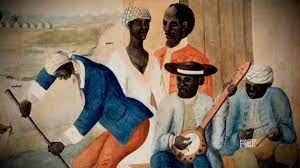
Faith Makes Suffering Surmountable
Esau McCaulley, an associate professor of New Testament at Wheaton College – a Christian school in Wheaton, IL. – is also a contributing opinion writer at the New York Times. McCaulley, who is black, recently wrote an article for the newspaper entitled, “How the Faith That Arose from the Cotton Fields Challenges Me.”
Surprisingly, though he acknowledges the racism and brutality of Christian slave owners, McCaulley doesn’t believe Christianity caused the suffering of African slaves in America. On the contrary, he believes that the unique Christianity of slaves sustained them in their suffering.
“I think that for them,” he writes, “the Black church did not just provide an answer. It was the answer. In a world that proclaimed that the enslaver was lord of all, the idea that something more mighty ordered the tide of events that swept up their lives was the hope needed to survive the day….
Survivable and Surmountable
“Christianity had a word to say on how (they) lived as individuals. It did not make them complacent about white supremacy. It made anti-Black racism survivable and surmountable. At the same time, their faith did the small work of making them better people.”
That faith has also sustained McCaulley, he writes, though, given his years of study about Christianity, it’s not the same as the faith that buoyed his ancestors’ faith.
“Sometimes the path of intellectual development leads us home to the beginning of things. I remained a Christian not simply because of what the faith might be able to do in the world but because of what it might do in me.”
This essay reminded me of my Irish ancestors whose faith nourished them during centuries of persecution by the English, the disastrous years of the famine and “the troubles” of more recent times.
No Longer Clinging to Faith
It’s unfortunate, in my view, that many Irish are no longer clinging to that faith but instead are following the lead of many others in northern Europe – and more recently in the U.S. – who have given up on God and religion.
For me, it’s a matter of preferring the bright, shiny penny of contemporary skepticism to the old, crumpled and soiled hundred-dollar bill of faith.
So, you might ask, what does faith offer? What possible relevance can it have for people today? I can speak from my own experience but also the experience of millions of others throughout the centuries. Faith makes life meaningful and worthwhile because a rational question about life is, “What’s the point?”
The “point” of faith is a relationship with the Creator of the Universe, a being that is always by our side and on our side, who loves us unconditionally and invites us to love him/her back.
How do we know that? To have faith, don’t you have to forgo your intellectual honesty?
Intellectual Honesty
Not in my view. Just the opposite. You forgo your intellectual honesty by not thoroughly and with an open mind investigating religion and its claims and conducting an honest search for God.
Although like any other human pursuit, including science, faith doesn’t offer certainty, it is rational and offers at least as much proof as you would get in a court of law. It appeals to thousands, perhaps millions of witnesses throughout the centuries whose faith, like that of McCaulley’s ancestors, allowed them to surmount unspeakable hardship.
What’s more, faith offers the invitation to belong to a community of fellow believers who share the conviction that God is with us through thick and thin.
That’s what helped sustain McCaulley’s slave ancestors a hundred and eighty years ago and what sustains him, and many believers, today.



